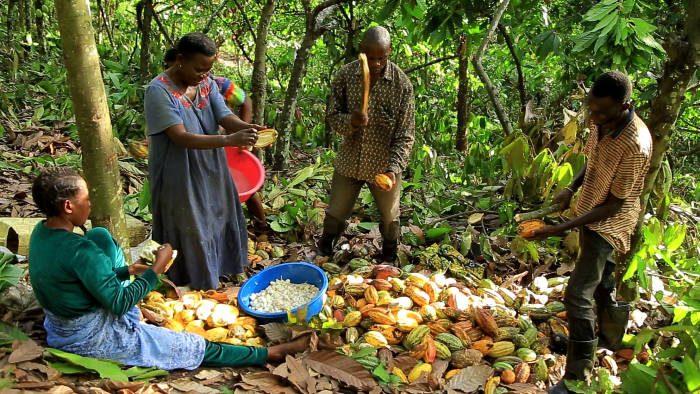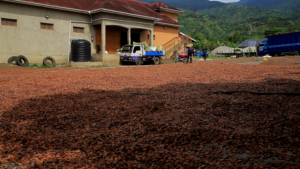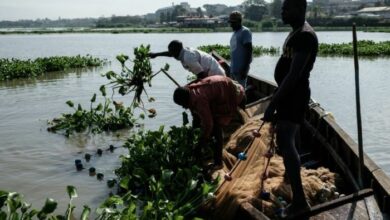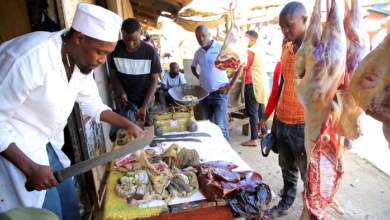Bundibugyo cocoa farmers reap big as prices shoot up

BUNDIBUGYO, April 26, 2024 – Cocoa farmers in Bundibugyo district are reaping big from the crop as prices rise to between Shs 25,000 to Shs 31,000 per kilogramme which farmers say has never happened.
According to farmers a kilogramme of dry cocoa beans is now Shs 31,000 while a kilogram of fresh ones is at Shs 25,000.
Farmers say they have a reason to celebrate the rise in cocoa prices because it has never gone beyond Shs 10,000 despite the decline in production.
Hezironi Sibaminya, a cocoa farmer and a resident of Kibale village in Bundibugyo district said he has four acres of cocoa which he said has been earning from it for the past 25 years.
“I have been growing cocoa for the past 25 years but the price of a kilogramme has never gone beyond Shs 10,000. However since last year, the price has been increasing day by day and a kilogram of dry cocoa beans is now at Shs 31,000 while fresh one is at Shs 25,000,” says Sibaminya.
He said due to the rise in prices, he has seen his household income improve daily which has helped him clear school fees for his children but pay bills for other family needs.
“Cocoa production has been a bit low but with the rise in prices, a farmer cant fail to earn some good money from whatever he has unlike in the past years when you could earn less with very low production,” he says.
He however called upon government to construct community roads so that they can easily access markets and also construct the cocoa factory in the area for value addition.
In 2016, while soliciting for votes in Bundibugyo district, President Museveni promised to construct a cocoa processing factory to help farmers and cooperatives in the area add value to the produce. However, up to now, the president is yet to fulfill his pledge.
Richard Gafabusa, the Bundibugyo Member of Parliament promised to remind Museveni about the pledge he made to the cocoa farmers.
According to Paul Murungi the Bundibugyo district Agricultural Officer, there is high demand for cocoa on the world market, which he said is responsible for the rise in the prices of cocoa beans worldwide, including in countries like Ivory Coast and Ghana, which are by far the two largest producers of cocoa, accounting for more than 50 percent of the world´s cocoa.
“The price of cocoa is expected to rise higher because countries like Ivory Coast, Ghana, and Cameroon which grow more cocoa, have witnessed a decline in production as they are maintaining a policy of rehabilitating old cocoa trees which may take them a period of 2 – 3 years to rejuvenate,” Murungi he says.
Robert Tibakunirwa, the Bundibugyo district LCV Chairperson LCV however says that although the wellbeing of cocoa farmers is improving economically with the rise in cocoa prices, the district has not benefited because there is no revenue collected despite cocoa being the leading cash crop in the district.
“Government should think about how to tax cocoa farmers because this would improve our local revenue as a district,” says Tibakunira.
Meanwhile, other analysts say cocoa prices are rising worldwide due to global supply shortage, chronic underinvestment in cocoa farms and investor speculation.
Chocolate brands are grappling with the impact of higher cocoa costs and this is resulting in price hikes and shrinkflation.
Facts
Bundibugyo is Uganda’s biggest cocoa producer accounting for over 70 percent of all cocoa exports.
In Uganda, cocoa is also produced in the districts of Mukono, Hoima, Masindi, Jinja, Kayunga,Buikwe and recently Kasese and Ntoroko.
Uganda earns close to US$ 150 million annually from cocoa exports alone ad Bundibugyo contributes close to US$ 100mln to this revenue.
Bundibugyo district produces more than 18,000 metric tonnes of cocoa annually. However, for the last three years, farmers have been selling a kilo at between Shs 5,000 and Shs 7,000.
Cocoa in Uganda is harvested twice a month throughout the year, with peak seasons in September to February and March to August.

Other issues
Methodius Baryesiima, Manager of Semuliki Cooperative Union, an umbrella for cocoa farmers in the district was happy that farmers are fetching better prices for their cocoa but decried the lack of clear policies in the country to regulate the sub-sector.
“We need our policy makers to make sure they draft a policy for cocoa. Uganda earns a lot from cocoa but unfortunately it has been left in the hands of the private sector,” he said.
Today, Uganda exports more than 30,000 tonnes of cocoa beans per year, according to data from Uganda Export Promotion Board [UEPB].
UEPB data shows that Uganda is ranked among the top 20 exporters of cocoa in the world.
The country exports cocoa in raw form because there is no chocolate factory in Uganda, what is done is just initial processing.
In Uganda, few farmers grow cocoa as most people think the crop is not economically viable.
Uganda has an estimated 20,000 hectares of land under cocoa cultivation, mostly in the country’s west and central regions, and the crop supports about rural 10,000 households.
However, Balyesiima says lack of clear policies to regulate cocoa farming has affected the quality of cocoa produced.
“We need our policy makers to make sure they draft a policy for cocoa. Uganda earns a lot of money from cocoa but unfortunately it has been left in the hands of private sector,” he says.
He says the absence of a cocoa policy to regulate cocoa production and handling has resulted in farmers earning less due to product quality issues.
Balyesiima argues that there is need for a national policy or regulatory framework to regulate the quality of cocoa on the market which he says farmers don’t even have post-harvest handling equipment like tarpaulins.
“Unlike other sectors like cocoa, tea among others, coffee and dairy have regulatory bodies responsible for quality issues. We also need a national regulatory and policy to regulate the quality of cocoa on the market,” he says.
He says for the country to improve on the marketability of cocoa, there is need to draft a national cocoa policy that will promote its quality.
Destructive virus threatens world’s supply of chocolate
https://thecooperator.news/cocoa-production-in-ivory-coast-expected-to-fall-by-28-5-percent/
Buy your copy of thecooperator magazine from one of our country-wide vending points or an e-copy on emag.thecooperator.news







